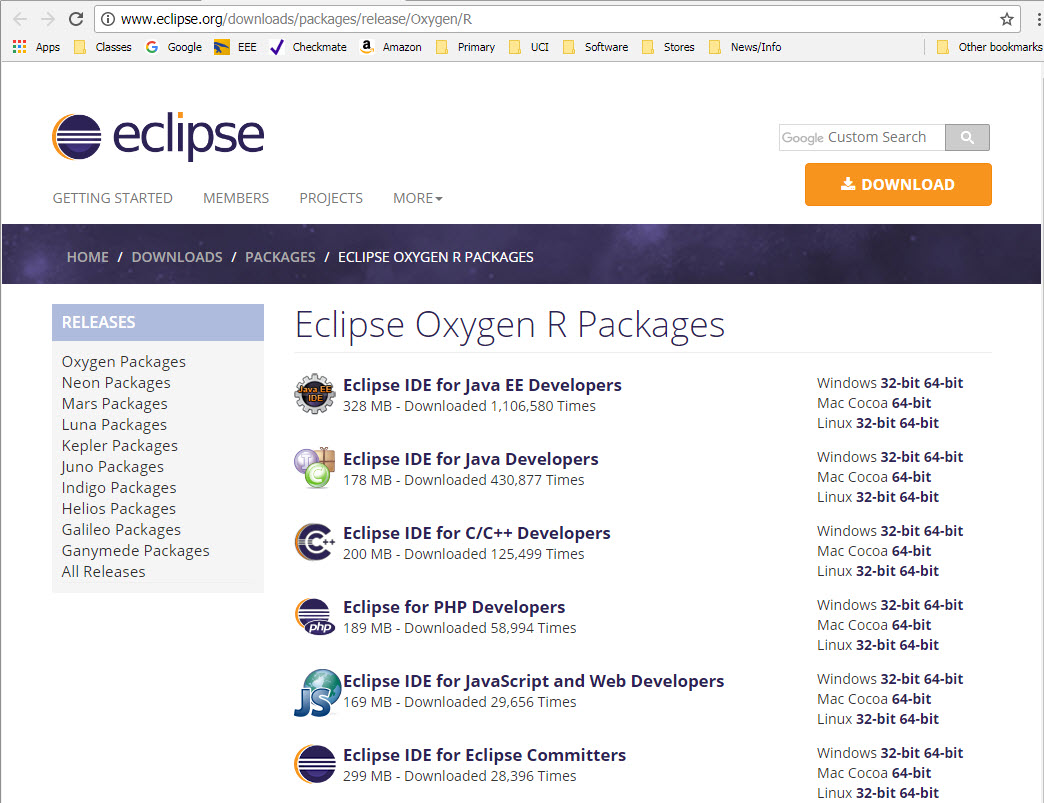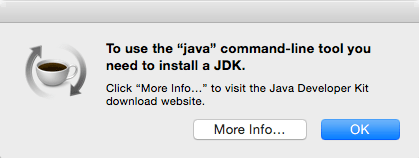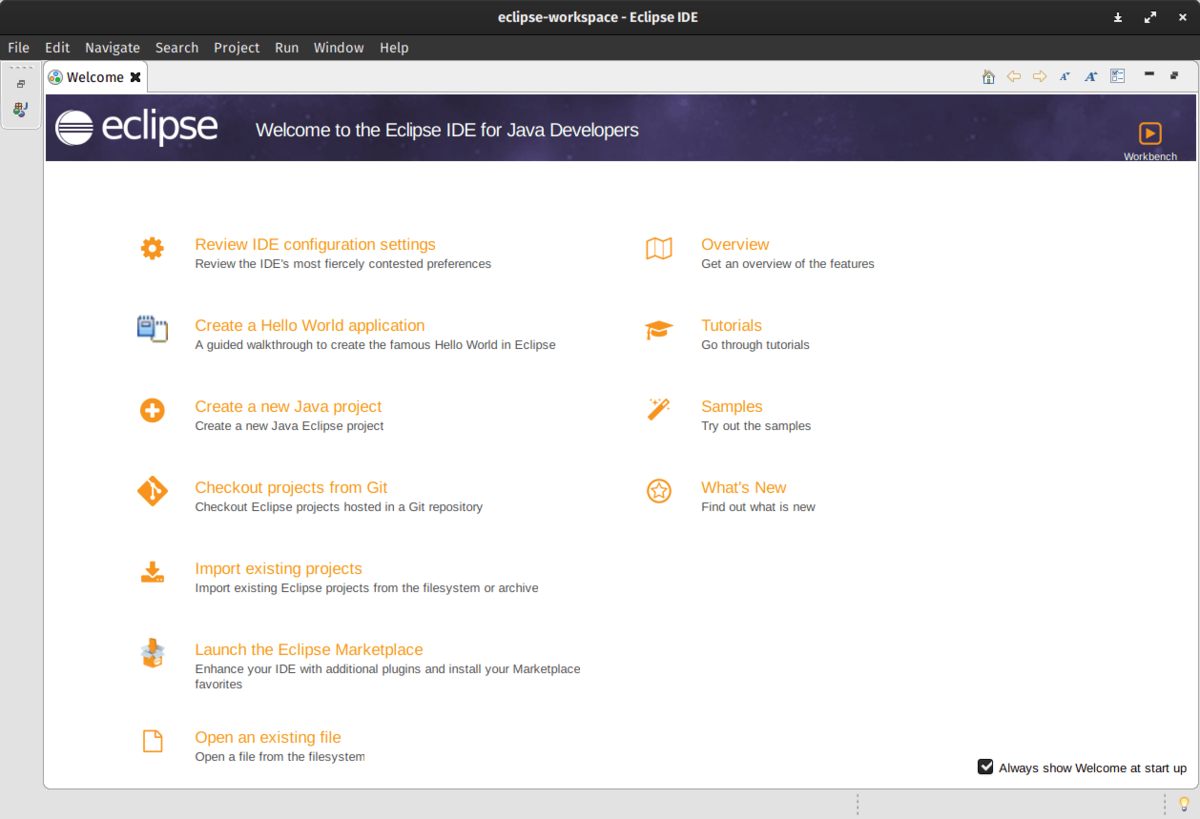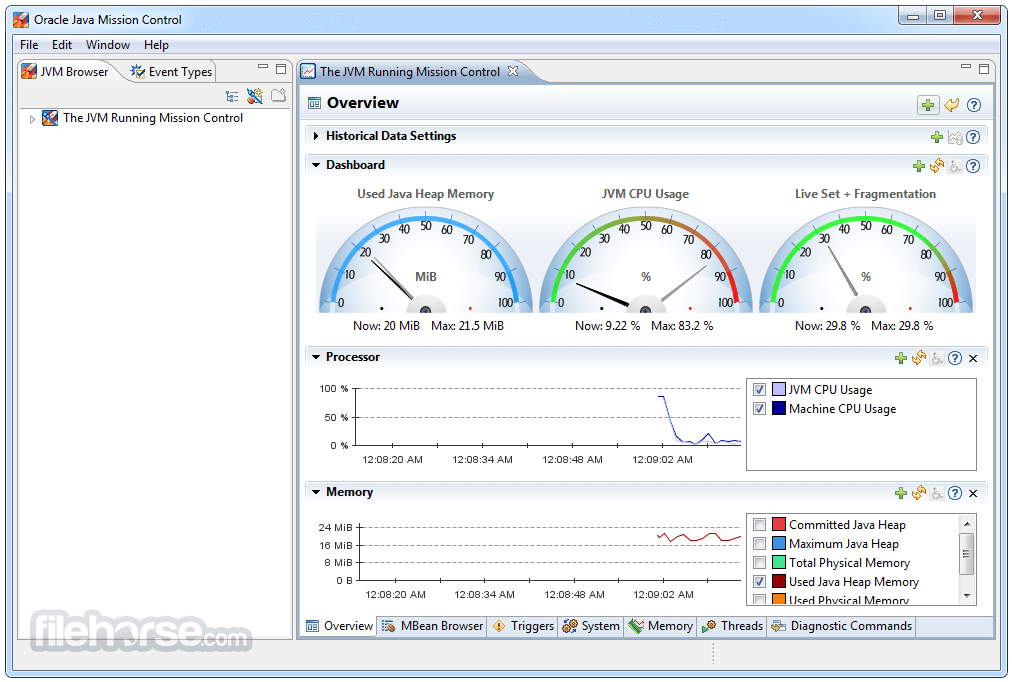Downloads
Java developer kit for mac free download - Apple Java for OS X 10.6, Java Update for Mac OS X 10.3.9, Microsoft Silverlight Software Development Kit Update 5/21/2007 for Mac, and many more programs. The current jGRASP releases are version 2.0.606 (October 23, 2020) and version 2.0.607 Beta (October 26, 2020). After downloading the Java Software Development Kit installer, double-click the downloaded file in the Downloads window of your web browser or in Finder. X Research source.
Looking to get started? use the Mobile Foundation IBM Cloud service to bring up a MobileFirst Server instance in minutes, or start locally by downloading the Developer Kit.
To learn more about the Mobile Foundation components and the Developer Kit Installer, visit the Setting up the MobileFirst development environment tutorial.
Product components
Digital App Builder can be used to rapidly build multi-channel apps with AI capabilities that can be deployed on Mobile Foundation runtime.
For more information on Digital App Builder, see the documentation here.
Download the Digital App Builder Installer for macOS
Download the Digital App Builder Installer for Windows
The Developer Kit bundles together the various components of Mobile Foundation 8.0.
Prerequisite:
To use the MobileFirst Server in your local workstation, Java Developer Kit (JDK) 7 or 8 is required to be installed.
- Download and install Java 7 or 8 JDK
- Set the
JAVA_HOMEenvironment variable to your JDK directory. For example:- Windows: C:Program FilesJavajdk1.7.0_67
- OS X: /Library/Java/JavaVirtualMachines/jdk1.7.0_67.jdk/Contents/Home
- Linux: /usr/lib/jvm/java-1.7.0_67/
Download the MobileFirst Developer Kit Installer for macOS (IF202010151343)
Download the MobileFirst Developer Kit Installer for Linux (IF202010151343)
Download the MobileFirst Developer Kit Installer for Windows (IF202010151343)
Once installation completes,
- From a Command-line window, navigate to the extracted folder and execute the
run.sh|cmdscript to start the MobileFirst Server. - Load the MobileFirst Operations Console (username/password: admin/admin): http://localhost:9080/mfpconsole.
- Optional. Click on Get Starter Code → Tools tab to download development tools or follow through the tutorials.
- Load the MobileFirst AppCenter console (username/password: ~admin/admin~): http://localhost:9080/appcenterconsole/.
To use the MobileFirst CLI the NPM package manager is required to be installed on the developer workstation.
You can verify the installation by running mfpdev -v.
Prerequisite:

- NPM is bundled as part of Node.js. Install Node.js.
- MobileFirst CLI from version 8.0.2018100112 supports Node version 8.x. Please use these versions to install and use the MobileFirst CLI.
- You may encounter a permission error during the installation of the CLI; see 'Fixing npm permissions'
From a Command-line window, run the command: npm install -g mfpdev-cli.
If the CLI was downloaded from the MobileFirst Operations Console, run the command: npm install -g path-to-cli-.tgz-file.
The MobileFirst CLIent SDKs are available in the following online repositories.
You can install them using their respective package managers.
For installation instructions, review the Adding the Mobile Foundation SDK tutorials.
The SDKs are also available from MobileFirst Operations Console → Download Center → Tools tab for offline installation.
- Cordova (npm)
- iOS (CocoaPods)
- Android (Maven)
- Windows (NuGet)
- Web (npm)

The MobileFirst Server-side artifacts are available from Maven Central.
For installation instructions, review the Adapters tutorials.
The artifacts are also available from MobileFirst Operations Console → Download Center → Tools tab for offline installation.
Prerequisite:
To fetch artifacts from Maven Central, Apache Maven must first be installed.
Available artifacts:
- Trust Association Interceptor - can be download from the MobileFirst Operations Console
- Live Update adapter - can be download from the MobileFirst Operations Console
Offline documentation
Below are links to download a PDF version of the MobileFirst Platform Foundation docs for offline reading:
Samples
Looking for sample applications?
- Go through this repository of advanced use case samples.
- Find your topic of interest and review its associated samples.
Past releases
Studio releases:- IBM MobileFirst Platform Foundation 7.1.0.0 (IF20200821-1626)
- IBM MobileFirst Platform Foundation 7.0.0.0 (IF20180223-0922)
- IBM MobileFirst Platform Foundation 6.3.0.0 (IF20180924-1113)
- IBM Worklight Foundation 6.2.0.1 (IF201611022-041)
- IBM Worklight 6.1.0.2 (IF201611022-042)
- MobileFirst Platform Foundation CLI v7.1 (IF20200821-1626)
- MobileFirst Platform Foundation CLI v7.0 (IF20180223-0922)
- MobileFirst Platform Foundation CLI v6.3 (IF20180924-1113)
- Make sure that you have the Eclipse IDE for Java EE Developers installed: Luna SR2 (4.4.2) or Mars SR1 (4.5.1).
Note 1: Other versions of Eclipse might result in installation failures.
Note 2: Ensure that your Eclipse workspace path does not contain any spaces, which can cause failures when apps are deployed to the internal development server, or when the MobileFirst Operations Console is started. - If you are upgrading from a pre-6.2 version of the Developer Edition, you must uninstall it first. Skip this step if you are upgrading from v6.2 or later.
- Start Eclipse, and then select Help > Install New Software.
- Click the Add button and select the Studio .zip you have downloaded
- Click the IBM MobileFirst Platform Studio Install button.
- IBM MobileFirst Platform Studio and all features are preselected. Confirm your selection and click Next.
- Always select IBM MobileFirst Platform Studio.
- IBM Dojo Mobile Tools and IBM jQuery Mobile Tools are optional; select them based on your anticipated use.
- Review and accept the license terms, and then click Finish to begin the installation.
- Follow the prompts to complete the installation.
- If your Eclipse workbench has IBM Rational Team Concert™ V4.0 Eclipse Client already installed, you might need to clean the Eclipse environment before you use Studio.
Java Developer Kit Mac
Next: Start creating apps by following the tutorials.
To use the CLI, you must have the Java Developer Kit (JDK) installed on your machine. Additionally, certain operating systems require certain software as a prerequisite. To generate a compatibility report, see Software Product Compatibility Reports.
You must have the JAVA_HOME environment variable to your JDK directory. For example:
- Windows: C:Program FilesJavajdk1.7.0_60
- OS X: /Library/Java/JavaVirtualMachines/jdk1.7.0_67.jdk/Contents/Home
- Linux: /usr/lib/jvm/java-1.7.0_60/
- Download the CLI package for the required release version
- Open your command-line terminal and change the directory to the folder where your CLI package is located.
- Unzip the downloaded file. The CLI is packaged as a single compressed file, which contains installation executable files for each platform:
- install_linux.bin
- install_mac.app/
- install_windows.exe
- resources/
- Select and run the installer that is appropriate for your platform. For example, when you run $ install_linux.bin, a GUI appears and guides you through the installation of Command Line Interface. Follow the instructions to complete your installation.
- On completion of the installation, log out from the OS, and then log back in. This action ensures that the appropriate commands are on your system path.
Next: Start creating apps by following the tutorials.
- Make sure that you have installed MobileFirst Studio on a supported version of Eclipse.
- Start Eclipse, and then select Help > Eclipse Marketplace.
- In the Find field, type MobileFirst Platform Test Workbench and click Go.
- Click the Install button.
- Select the features that you want to install, and then click Next.
- Click Next, and then review and accept the license terms, and then click Finish to begin the installation.
- Follow the prompts to complete the installation.
- Testing Android applications with the Test Workbench requires a JDK. Be sure to add the path to the JDK in Eclipse under Window > Preferences > Java > Installed JREs, and set it as the default JRE by selecting its corresponding check box.
Next: Start testing your apps by following the tutorials.
| Developer(s) | Oracle Corporation |
|---|---|
| Stable release | |
| Operating system | Windows NT, macOS, Linux, Solaris |
| Platform | IA-32, x64, ARM, SPARC |
| Type | Software development kit |
| License | Sun License (most of it also under GPL) |
| Website | www.oracle.com/technetwork/java/ |
The Java Development Kit (JDK) is an implementation of either one of the Java Platform, Standard Edition, Java Platform, Enterprise Edition, or Java Platform, Micro Edition platforms[1] released by Oracle Corporation in the form of a binary product aimed at Java developers on Solaris, Linux, macOS or Windows. The JDK includes a private JVM and a few other resources to finish the development of a Java application.[2] Since the introduction of the Java platform, it has been by far the most widely used Software Development Kit (SDK).[citation needed]
JDK contents[edit]
The JDK has as its primary components a collection of programming tools, including:
- appletviewer – this tool can be used to run and debug Java applets without a web browser
- apt – the annotation-processing tool[3]
- extcheck – a utility that detects JAR file conflicts
- idlj – the IDL-to-Java compiler. This utility generates Java bindings from a given Java IDL file.
- jabswitch – the Java Access Bridge. Exposes assistive technologies on Microsoft Windows systems.
- java – the loader for Java applications. This tool is an interpreter and can interpret the class files generated by the javac compiler. Now a single launcher is used for both development and deployment. The old deployment launcher, jre, no longer comes with Sun JDK, and instead it has been replaced by this new java loader.
- javac – the Java compiler, which converts source code into Java bytecode
- javadoc – the documentation generator, which automatically generates documentation from source code comments
- jar – the archiver, which packages related class libraries into a single JAR file. This tool also helps manage JAR files.
- javafxpackager – tool to package and sign JavaFX applications
- jarsigner – the jar signing and verification tool
- javah – the C header and stub generator, used to write native methods
- javap – the class file disassembler
- javaws – the Java Web Start launcher for JNLP applications
- JConsole – Java Monitoring and Management Console
- jdb – the debugger
- jhat – Java Heap Analysis Tool (experimental)
- jinfo – This utility gets configuration information from a running Java process or crash dump. (experimental)
- jmap Oracle jmap - Memory Map– This utility outputs the memory map for Java and can print shared object memory maps or heap memory details of a given process or core dump. (experimental)
- jmc – Java Mission Control
- jpackage – a tool for generating self-contained application bundles. (experimental)
- jps – Java Virtual Machine Process Status Tool lists the instrumented HotSpot Java Virtual Machines (JVMs) on the target system. (experimental)
- jrunscript – Java command-line scriptshell.
- jshell - The new jshell introduced in java 9.
- jstack – utility that prints Java stack traces of Java threads (experimental)
- jstat – Java Virtual Machine statistics monitoring tool (experimental)
- jstatd – jstat daemon (experimental)
- keytool – tool for manipulating the keystore
- pack200 – JAR compression tool
- policytool – the policy creation and management tool, which can determine policy for a Java runtime, specifying which permissions are available for code from various sources.
- VisualVM – visual tool integrating several command-line JDK tools and lightweight[clarification needed] performance and memory profiling capabilities
- wsimport – generates portable JAX-WS artifacts for invoking a web service.
- xjc – Part of the Java API for XML Binding (JAXB) API. It accepts an XML schema and generates Java classes.

Experimental tools may not be available in future versions of the JDK.

The JDK also comes with a complete Java Runtime Environment, usually called a private runtime, due to the fact that it is separated from the 'regular' JRE and has extra contents. It consists of a Java Virtual Machine and all of the class libraries present in the production environment, as well as additional libraries only useful to developers, such as the internationalization libraries and the IDL libraries.
Copies of the JDK also include a wide selection of example programs demonstrating the use of almost all portions of the Java API.
Ambiguity between a JDK and an SDK[edit]
The JDK forms an extended subset of a software development kit (SDK). It includes 'tools for developing, debugging, and monitoring Java applications'.[4] Oracle strongly suggests to now use the term JDK to refer to the Java SE Development Kit. The Java SE SDK is available with or without the JDK, by which they specifically mean the Java SE 7 JDK.[5]
Other JDKs[edit]
Java Developer Kit Download Mac
In addition to the most widely used JDK discussed in this article, there are other JDKs commonly available for a variety of platforms, some of which started from the Sun JDK source and some that did not. All adhere to the basic Java specifications, but often differ in explicitly unspecified areas, such as garbage collection, compilation strategies, and optimization techniques. They include:
In development or in maintenance mode:
- Azul Systems Zing, low latency JDK for Linux;[6]
- Azul Systems / OpenJDK-based Zulu for Linux, Windows, Mac OS X, embedded and the cloud;[7]
- OpenJDK / IcedTea;
- AicasJamaicaVM;
- IBM J9 JDK, for AIX, Linux, Windows, MVS, OS/400, Pocket PC, z/OS;[8]
Not being maintained or discontinued:
- Apache Harmony;
- Apple's Mac OS Runtime for Java JVM/JDK for Classic Mac OS;[9]
- Blackdown Java – Port of Sun's JDK for Linux;[10][11]
- GNU's Classpath and GCJ (The GNU Compiler for Java);
- Oracle Corporation's JRockit JDK, for Windows, Linux, and Solaris;[12]
See also[edit]
References[edit]
- ^'Java SE 7 Features and Enhancements'. Oracle Corporation. Retrieved 1 January 2013.
- ^'OpenJDK homepage'. Oracle Corporation and/or its affiliates. Retrieved 1 January 2013.
- ^'JDK 5.0 Java Annotation Processing Tool (APT)-related APIs & Developer Guides -- from Sun Microsystems'. Retrieved 5 August 2012.
- ^'Java SE Downloads'. Oracle. Retrieved 10 July 2013.
- ^'Java EE 7 SDK distributions require JDK 7''Java Platform, Enterprise Edition 7 SDK - Installation Instructions'. Installing the Software. Oracle. Retrieved 10 July 2013.
- ^'Azul Zing product page'.
- ^'Azul Zulu download page'.
- ^'developerWorks : IBM developer kits : Downloads'. Retrieved 5 August 2012.
- ^'Support at Apple'. Archived from the original on 13 December 2007.
- ^'Java Linux Contact Information'. Archived from the original on 7 August 2007. Retrieved 5 August 2012.
- ^'Java-Linux Latest Information'. Archived from the original on 19 October 1996. Retrieved 5 August 2012.
- ^'JRockit Family Download page'. Retrieved 5 August 2012.
External links[edit]
- GNU Classpath – a Free software JDK alternative[citation needed]
Java Developer Kit Download Website For Mac

Oracle Java Developer Kit
Java Developer Kit Download Website Mac Pro
